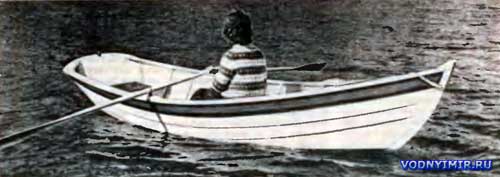

Enjoy the beautiful scenery, relax and unwind with the magical scenes of idyllic countryside. We are located in the village Plesmo, in the heart of Posavina near river Strug. It is ideal accommodation for tourists who want to relax in an oasis of peace, tranquility and natural beauty. During your stay with us, we offer a full range of activities. It is only one kilometer away from the village of Krapje, European cultural heritage, A-category and is located at the southern entrance to the Nature Park “Lonjsko Polje“. Lonja field is the largest protected wetland in the entire Danube basin.
It covers an area of 505.6 square kilometres (195.2 sq mi), extending along the river Sava from the areas east of Sisak, the lower course of the river Lonja for which it is named, to the areas west of Nova Gradiška, along the course of the river Veliki Strug. Wast pasture lands of Lonja field are feeding the horses, cows and pigs of nearby resitends, while whole wetland is home to large number of animals and plants. Inside the nature park, you can find around ten villages, which represent local cultural heritage. The the park is also an important habitat for birds (Important Birds Area – IBA). Starting from 1993., Lonja field is protected by Ramsar convention.
178.159.39.237 AS21100 01:04:28 http //maldivy.biz/puteshestvie-na-ostrov.html 185.68.16.103 AS200000 – UA Mozilla/4.0 (compatible; MSIE7.00; Windows 2003).
Naslov Povijest Poljica u svjetlu redakcija Poljičkog statuta Naslov (engleski) HISTORY OF POLJICA COMMUNITY IN THE LIGHT OF EDITIONS OF THE POLJICA LAW BOOK Autor Luka Goreta Mentor (mentor) Član povjerenstva (predsjednik povjerenstva) Član povjerenstva (član povjerenstva) Član povjerenstva (član povjerenstva) Ustanova koja je dodijelila akademski / stručni stupanj Sveučilište u Splitu Filozofski fakultet Split Datum i država obrane 2016-09-05, Hrvatska Znanstveno / umjetničko područje, polje i grana HUMANISTIČKE ZNANOSTI Povijest Sažetak. This paper describes the history of the Poljica Principality during several centuries of its existence and highlights developments that influenced particular redactions of the Poljica Statute. The name of the Poljica Republic, parish, county or principality designates a small self governing rural community organized in the mountainous area of Dalmatia in medieval times until the beginning of the 19th century in the southern vicinity of Split.
Despite the environment and pressures coming from the powerful European military-political super powers, Poljica has functioned successfuly for several centries as an autonomous territorial community lead by the Grand Duke of Poljica within its internal self-administration and organization of the social-economic relations and codified customary laws. Poljica earned its autonomy through a skillful policies of a formal recognition of the external supremacy, of firstly Croatian national rulers, Croatian viceroys (bans) and Bosnian kings then Croatian-Hungarian kings, Venice and Ottoman Empire, but also by its own Compendium of collective laws, Poljica Statute, which regulate internal, external social, political and legal relations. Besides the legal and court provisions in the Statute were also recorded all relevant social and political developments of Poljica, so were recognitions of the new rulers, before whom would Poljicans on such occasions present their “respected statute” for an approval. New provisions of the Statute were adapted in line with requirements of the new authority, however the Poljica people were in the same time protecting their own traditionally kept privileges, rights and the automomy. At the time were created specific redactions of the Statute. Contoh kontrak perjanjian pembuatan software di indonesia. The scolars disagree on their number and the time of creation.
New News
- Uncharted 2 Pc Key
- Free Download D3d Drivers With Hardware Acceleration Igi Pc Game
- Onimusha 4 Pc Game Setup Download Torrent
- Modeli Oruzhiya Dlya Stalker Zov Pripyati
- Phantom Of The Opera 25th Anniversary Album Download
- Butch Vig Vocals Plugin Torrent
- Chertezhi Nozhej S Razmerami
- Khwab Dekhe Jhoote Moote Remix Mp3 Free Download
- Automatic License Plate Recognition Using Python And Open Cvs